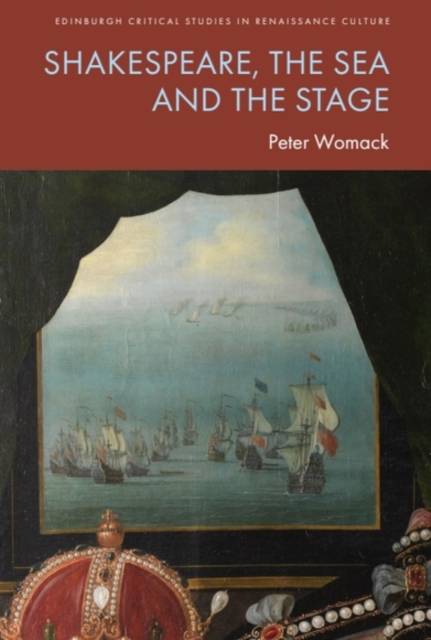
Bedankt voor het vertrouwen het afgelopen jaar! Om jou te bedanken bieden we GRATIS verzending (in België) aan op alles gedurende de hele maand januari.
- Afhalen na 1 uur in een winkel met voorraad
- In januari gratis thuislevering in België
- Ruim aanbod met 7 miljoen producten
Bedankt voor het vertrouwen het afgelopen jaar! Om jou te bedanken bieden we GRATIS verzending (in België) aan op alles gedurende de hele maand januari.
- Afhalen na 1 uur in een winkel met voorraad
- In januari gratis thuislevering in België
- Ruim aanbod met 7 miljoen producten
Zoeken
Omschrijving
The sea for Shakespeare is both a location and a metaphor; and either way it affords him an extraordinary freedom of invention, releasing whatever in the plays is vast, fluid and unceasing. It is also a defining element of his historical context: he lived and worked a few yards from one of the great maritime rivers of the world, and for much of his career England was engaged in a naval war with Spain. So the Shakespearean sea invites two distinct perspectives - poetics and history, the conventional literary symbol and the contingent economic struggle. This book embraces both of them together, tracing the intricate connections between them, and showing how they meet, above all, on the stage. It was in the Elizabethan playhouse that commercial enterprise, physical confinement and boundless rhetoric interacted to generate an imaginative energy whose waves can still be fel.
Specificaties
Betrokkenen
- Auteur(s):
- Uitgeverij:
Inhoud
- Aantal bladzijden:
- 208
- Taal:
- Engels
- Reeks:
Eigenschappen
- Productcode (EAN):
- 9781399539494
- Verschijningsdatum:
- 28/02/2025
- Uitvoering:
- Hardcover
- Formaat:
- Genaaid
- Afmetingen:
- 156 mm x 234 mm
- Gewicht:
- 471 g

Alleen bij Standaard Boekhandel
+ 386 punten op je klantenkaart van Standaard Boekhandel
Beoordelingen
We publiceren alleen reviews die voldoen aan de voorwaarden voor reviews. Bekijk onze voorwaarden voor reviews.









